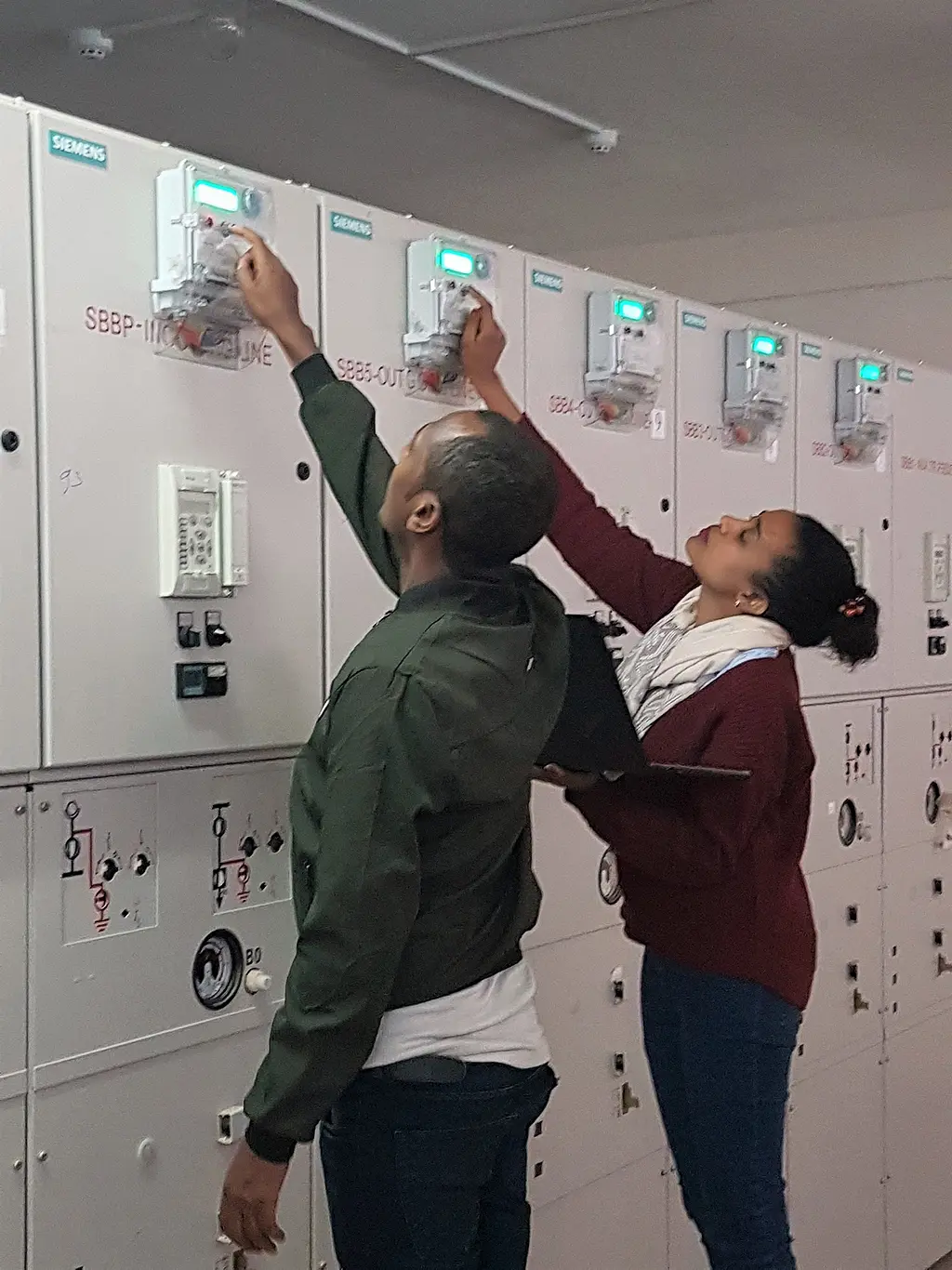Supporting a nationwide electric utility through COVID-19 and other challenges
Ethiopia’s state-owned power company, Ethiopia Electric Utility (EEU), provides electricity to about three million customers across the country. The ultimate goal of EEU, and the Government of Ethiopia, is to extend electricity service to all of the nation’s 100 million citizens. However, there are challenges to making this goal a reality.
Barriers to Ethiopian Energy Service Expansion
Most of Ethiopia’s geothermal resources—that is, its vast underground reservoirs of steam and hot water—have yet to be tapped, which may result in delays in expanding electricity services to its citizens.
In addition, EEU faces a very difficult operating environment. Balancing cash flow is essential, but EEU is also subject to fluctuations that may hamper its operations. The utility purchases the energy it distributes from Ethiopian Electric Power (EEP), largely with funds that it collects from its customers on a monthly basis. If collections fall short—because customers are either unable or unwilling to pay for the electricity they use—then EEU incurs deficits. EEU estimates that these deficits currently amount to close to $100 million per year, further delaying grid development and services to the remaining unconnected Ethiopian consumers.
EEU’s most recent challenge has been the severe impact of COVID-19 on the utility’s revenue and delivery of service. The country’s partial lockdown and scaling down of economic and social activities has reduced demand for electricity—as of mid-July, Ethiopia has had nearly 10,000 cases of COVID-19 and 163 confirmed deaths. This potential loss of revenue could impact the ability of EEU to service existing debt and meet required operations budgets, thus constraining the quality and the extent of the services it provides. This would be especially problematic as EEU powers essential health services at nearly 200 hospitals in the Addis Ababa and Finfinne regions.

Improving Energy Access with the East Africa Energy Program During COVID-19 and Beyond
Power Africa’s East Africa Energy Program (EAEP), funded by USAID and implemented by RTI, has been working with EEU to address these imbalances and improve the utility’s cash flow. By supporting the financial and operational health of EEU, the program is helping the utility provide an uninterrupted supply of energy to essential healthcare facilities during the pandemic and beyond.
The program team has helped EEU build capacity to accurately bill customers, generating revenue that could have been lost during this trying time due to incorrect meter readings. In the summer of 2019, the program collaborated with EEU to conduct energy audits by taking regular readings of the “feeder” power meters that supply various neighborhoods. A feeder meter measures the consumption of power from a single line going to multiple households, thus giving the utility a broad sense of where electricity is being used without having to read individual household meters. EEU staff collected four consecutive months of data, which showed major, previously unaddressed inconsistencies in customer billing and power consumption. With this new information, EEU has been able to strategically collect overdue payments and correct bills. This also supports EEU’s ability to correctly bill based on electricity usage, enabling the utility to build rapport with its consumers and collect what it is owed.
In addition, EAEP has helped EEU devote more time to vital activities during the pandemic. The project team and EEU collaborated on a pilot project in Addis Ababa, Ethiopia’s capital. With input from the program, EEU made two key changes to its customer meter-reading process—reducing the number of meter-reading days from 20 to 12 and reducing the number of meter readers from 8 to 6. These changes allowed EEU to increase its average number of customer energy meter readings from 80 to 150 per day. This increase in efficiency, in turn, allowed the utility to spend more time on other vital activities, such as inspections of faulty meters and disconnections of non-paying customers. The program is also supporting EEU to implement technology-based utility operations and customer service that allows for the physical distancing of employees and customers—critical to fighting COVID-19. This includes using the Power Africa-funded NRECA Geographic Information System to map customers linked to low- and medium-voltage lines and manage accounts remotely, which minimizes the need for field technicians to visit residences.
Immediate Impact and Progress on the Journey to Self-Reliance
In light of shocks such as COVID-19, Power Africa’s support through EAEP has contributed significantly to EEU’s financial health. In January 2020, the utility reported that its revenues had increased by approximately $9 million over the previous year; in March, the utility reported an approximate $17 million increase over the previous year. Those changes represent a $26 million increase over the same period in the previous year. This work helped give EEU’s bottom line a critical boost before the pandemic took full effect.
Also, thanks to the change in EEU’s meter-reading process, the number of resolved customer complaints increased by 25%, demonstrating new efficiencies in customer service and a commendable level of responsiveness by staff.
The willingness of EEU to adjust its processes demonstrates the energy company’s commitment to the journey to self-reliance and its goal of expanding electrical services to an increasing number of Ethiopian citizens. EEU’s success at reconciling inefficient systems, adhering to a comprehensive turnaround plan, and focusing on improved accountability points to a brighter future for the entire Ethiopian power sector.
- U.S. Agency for International Development (USAID)
